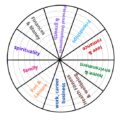Addiction to Games and the Effect on Children
We often think of it as addiction to drugs, cigarettes, gambling and alcohol, but it can also be even simpler things like, eating, gaming or even playing sudoku. Addiction is often thought of as an adult problem but this isn’t always the case. Children can also be addicted to these things. This behaviour mightn’t be a problem for you, but if your child is addicted to something, then it can also have catastrophic consequences for you, your family and friends if not treated.
Addiction is not being able to stop doing something, it’s a compulsive behaviour that takes over their life that they can’t stop doing without help and support.
I thought I knew about addiction being an ex-smoker and knowing how hard it was to give up, I had to have a really good reason why I should stop that kept me going and motivated to stop puffing on a cigarette. I really thank that I was pregnant with my daughter, otherwise I don’t think I could have ever stopped. Maybe I’ve got an addictive personality?
How I got get Hooked on a Game
I’ve always been careful with alcohol, never drinking on a regular basis and drugs have been a fear, so I’ve never used them as I don’t want to get hooked, cigarettes was hard enough to quit or go without, so why would I put temptation in front of me? Then I started playing games on the computer, minesweeper got me, I was hooked. I would spend hours avoiding bombs and unlocking the puzzle. My waking hours would be spent not playing the game but still thinking about avoiding bombs. I’d be hanging the washing on the line and thinking about bombs, I’d be shopping in the supermarket and find my mind wandering to avoiding bombs. Maybe this was a problem and I really did have an addictive personality?
Wow, I’m an adult and I was having trouble controlling my thoughts about a stupid game. Time to give that particular game up! Suduko hit the market, I bought books and had fun doing the puzzles, mind expanding puzzles, or so they said. No problem here, then it hit my phone, I still could do it, have fun and not be obsessed. Then last week I got a new strategic mind puzzle game.
“There is a fine line between behavioural addictions and helpful habits.” -Adam Alter
Where does the time go?
Oh no!!!!! 4.5 hours later and I was still playing, where had the time gone???? The next day I started at 9 pm thought I would play a game before bedtime, 2 am and I finally stopped playing, where had the night gone????? The following day I had to play a game at lunch time to see if I could improve my score, luckily 3 hours later the phone rang and took me out of my stupor. I got back on again that night and was mesmerised for another 5 hours. I woke the following morning thinking about blocks and positions, all day I just wanted to play finding my thoughts going constantly to block placements, but I held off till that night and played again till late into the night.
Five days after downloading a new game and I’ve got a problem, an addiction problem, but I loved this game, maybe I could limit my playing and keep playing??? I must admit, I did try, but no!!! I couldn’t play without being totally consumed and completely obsessed. I have to go cold turkey and never play it again. I am grateful for my ability to identify and modify my behaviour.
Children Obsessed by Games
This obsession with the game has made me wonder what our children do when they get obsessed. I’m an adult and realized I was going to have a problem so modified my behaviour straight away, but kids won’t realize this, so what will happen to them? How would parents know their children have a problem that needs addressing? What should we be looking for? When should we intervene in the seemingly harmless activity of playing games. Time to do some research on the effect addiction has on our kids and this is what I’ve found.
Key Questions to Ask Yourself
- Is your child’s game playing an addiction or just an over indulgence?
- Answer – be honest when you answer this question and make sure you aren’t using rewards of extra playing and spoiling the child with extra time.
- As parents how would we know that our child’s brain was constantly being bombarded with gaming thoughts and they were unable to distract themselves?
- Answer – By observing and watching what your kids are doing.
- Is your child easily pulled away from games to join the family during dinner and join in conversations are they interested in outside activities like hobbies, sports and social interactions?
- Answer – If so, then they are probably not addicted at this point. If your child won’t spend time with you preferring to spend time in his/her room, then you might have a problem that requires investigation.
What do the Experts Say?
- Three hours of game playing each day can affect a child’s behaviour and well-being, so by the time parents are aware of the severity of the addiction problem the children would probably be well and truly addicted to the game. They would be well on the way to the fixation to gadgets and subtle changes in behaviour, such as impulsiveness, moodiness, poor attention, laziness, maybe obesity and lack of restorative sleep.
- Studies have shown much of the damage to the brain occurs by the shrinking in the front lobe which affects their planning, prioritising, organising and their impulse control including socially unacceptable impulses. Gaming addiction has been associated with impaired cognitive skill performance too.
- Research has shown the increase in dopamine release is similar to drug cravings along with lower amount of dopamine receptors and transporters, but once the addiction is stopped current research shows the brain can repair itself.
- The reason games keep us hooked could be because they fulfill the human drive to achieve goals or social acceptance, replacing real life activities. [In my case it was the reward of doing better with the blocks that kept me coming back time and time again].
- Studies have shown boys are more likely to abuse video games, where as girls are more likely to obsess with social media.
- Parents are struggling to control the destructive misuse of digital technology used by children, unfortunately the more time children spend on these devises the increased risks they have of emotional problems and decreased academic success they have. So what can parents do?
“Your kid is not weak-willed because he can’t get off his phone….. Your kid’s brain is being engineered to get him to stay on his phone.” -Ramsay Brown, (neuroscientist) in a recent Time article.
“God only knows what it’s [Facebook] doing to our children’s brains.” Sean Parker (Facebook’s former president)
What can Parents Do? 
Spend time outside.
Take the kids outside to get some sunlight, fresh air and take in the nature around them. Go to the park and enjoy being outdoors. Vitamin D is great for emotional happiness.
Get Some Exercise
Join a sporting club, the kids will get great social interaction and good physical movement. Simple exercise and movement, maybe dancing, swimming or just free play will help emotional well-being of kids.
Start a Hobby or Activity
Creative endeavours is a great way to get your brain working and engaged in other activities.
Spend time together as a family.
Helping cook dinner together each night, doing the dishes together or doing the gardening together can be great family bonding time, don’t underestimate simple time spent together each day, you don’t have to have big trips.
Hug each other
Physical touch is really important for everyone, hug your kids, even if they are teanagers and tell them you appreciate and love them.
Be Positive
Be positive, change or get rid of any negative attitudes, teach children gratitude, and how to look on the bright side of life.
Listen to each other
We all love to be heard when we speak. If we are not heard we can shut down and not share, so make sure you listen to your kids and hear everything they say. Ask them questions and be interested in what they say.
Mindfulness
Practice mindfulness as a family. You can incorporate meditation, breath work, and yoga into family activities.
Sleep well
Prioritise good sleep hours going to bed early after dark and rising early in the morning, just like nature intended. Make sure your bedrooms are your sanctuary and they are dark cool rooms. Reduce technology especially at the end of the day and turn off WiFi each night.
Limit technology
Have a daily allowance of technology use and never go over this amount. Turn down the brightness on screens or use a blue screen.
Obsessions and addictions come in many forms. When they occur in adults some adults are self aware and some are not. Addictions and obsessions that occur in children can be related to games and technology. Behavioral and physiological damage in children is becoming more well documented. The experts suggest 4 key questions for parents to ask and also have a series of recommendations which will help your children.










0 Comments